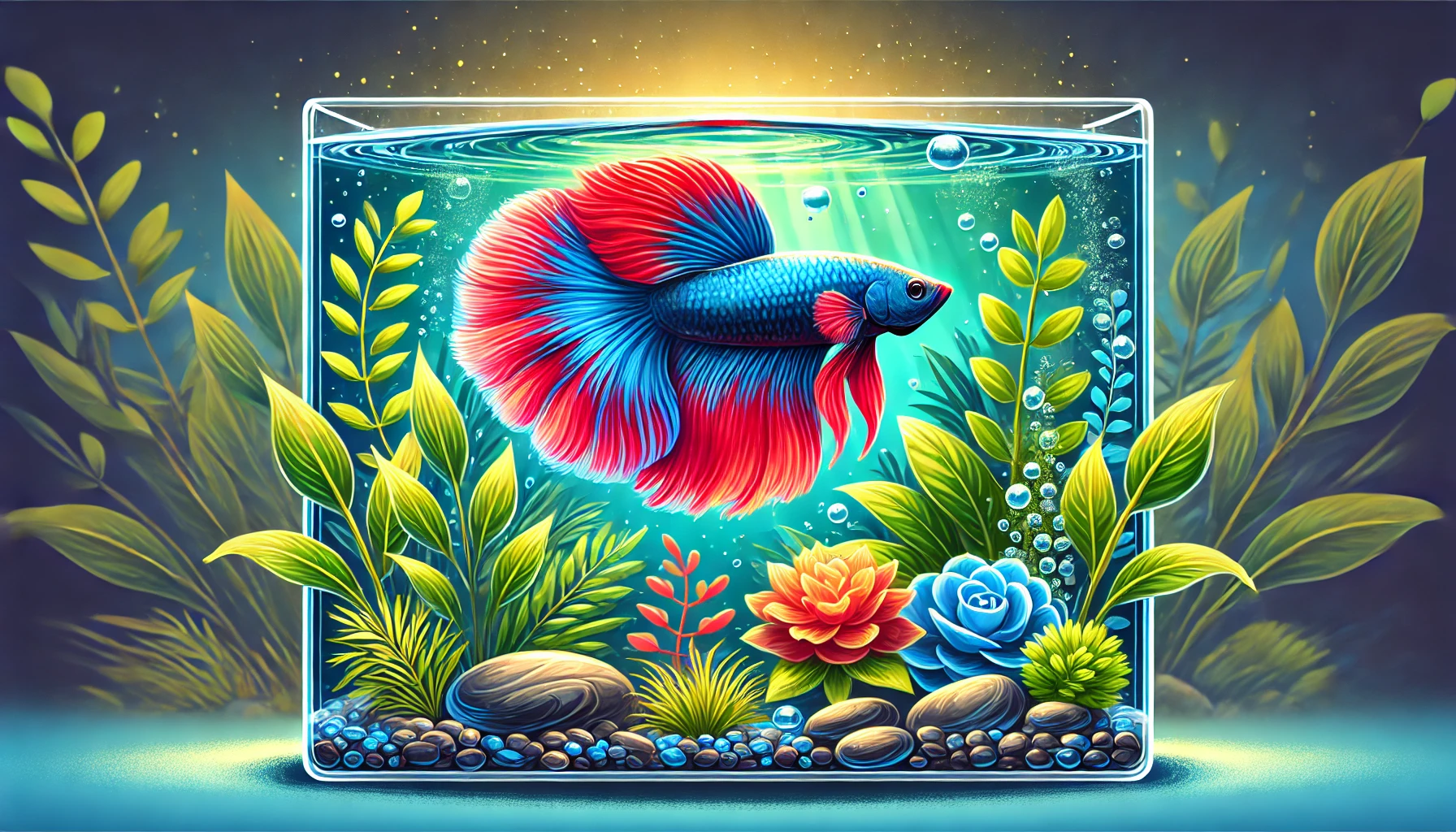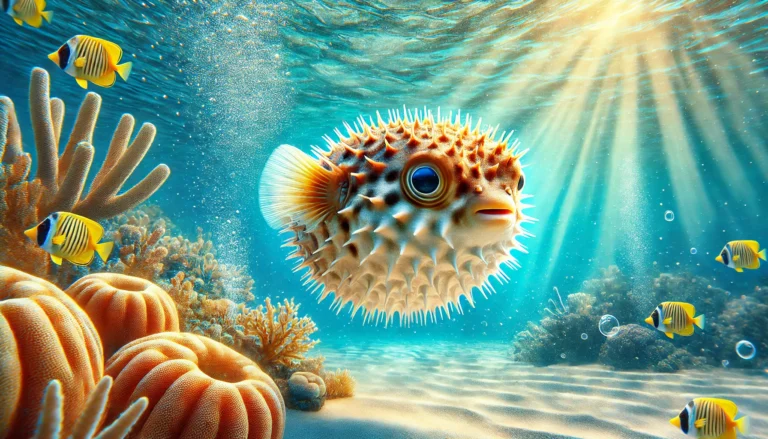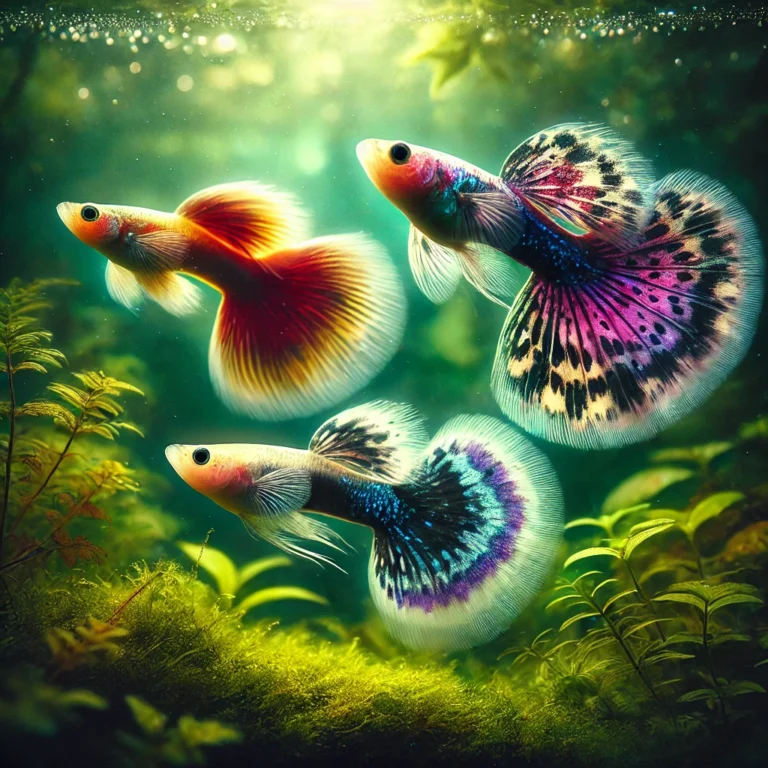Betta Fish Tank: The Comprehensive Care Guide

Betta fish, with their splendid colors and flowing fins, are among the most popular pets for aquarium enthusiasts. If you’re looking to dive into the world of these vibrant creatures, a proper betta fish tank setup is essential. This guide will walk you through everything from choosing the best betta fish tank to understanding betta fish care, ensuring your aquatic pal thrives.

Choosing the Best Betta Fish Tank
When setting up a betta fish tank, size matters. While bettas can survive in smaller environments, they flourish in larger spaces. A tank of at least 5 gallons is recommended to provide adequate room for swimming and exploration. This size supports stable water conditions and allows for the inclusion of a heater and filtration, both of which are crucial for maintaining the health of your fish.
Betta Fish Tank Setup
Setting up your betta fish tank correctly is the first step to ensuring a healthy and vibrant life for your fish. Here’s how to do it:
Water Conditions and Filtration
Betta fish require warm water with temperatures ranging from 76 to 82 degrees Fahrenheit. Consistent water temperature is vital, and a reliable aquarium heater is a must-have in your setup. Filtration is also crucial, not just for keeping the water clean, but for oxygenating the water. Although bettas can breathe atmospheric air thanks to their labyrinth organ, they still benefit from well-oxygenated water.
Betta Fish Tank Decor
The interior of your betta tank is more than just aesthetics. Smooth-edged decor and live plants not only make the tank attractive but also provide hiding spots that help reduce stress for your betta. Avoid sharp-edged decorations that can tear their delicate fins.
Betta Fish Care
Caring for your betta involves more than just feeding it; it requires monitoring water quality, regular tank maintenance, and understanding the signs of a healthy fish.
Diet and Feeding
Betta fish are carnivores. High-quality betta pellets should form the core of their diet, supplemented with treats like brine shrimp or bloodworms. Feed your betta once or twice a day, being careful not to overfeed as uneaten food can decompose and degrade water quality.
Health Monitoring
Bettas are susceptible to various health issues like fin rot, bacterial infections, and fungal diseases. Regularly check your betta for signs of distress or illness, including lethargy, discoloration, or frayed fins. Early detection and treatment can prevent more serious health problems.
Maintaining Your Betta Fish Tank
Routine maintenance is key to a healthy betta fish tank. Here are some tips to keep your tank in top condition:
Regular Water Changes
Change 20-25% of the water weekly to keep toxic substances like ammonia at bay. Use a water conditioner to remove chloramines and chlorine from tap water, ensuring it is safe for your fish.
Cleaning and Algae Control
Use an algae scraper to keep the walls of the tank clean. Clean the substrate using a gravel vacuum to remove food waste and feces that can pollute the water.
Betta Fish Lifespan and Common Questions
How Long Do Betta Fish Live?
With proper care, betta fish can live 3 to 5 years. Factors that influence their lifespan include genetics, diet, and overall quality of care.
dO YOU KNOW?
Samoyeds, known for their fluffy white coats and cheerful demeanor, are more than just beautiful pets. They possess unique characteristics that make them beloved companions.
Betta Tank Mates
While bettas are known for being territorial, they can coexist with certain peaceful fish species. Snails, shrimp, and more docile fish like tetras can make good tank mates in a sufficiently sized aquarium.
Betta Fish Water Temp and Tank Conditions
Keeping the water temperature and quality within ideal ranges is critical for the health of your betta. Regular testing for pH, ammonia, nitrites, and nitrates will help you maintain the perfect environment.
Conclusion: Thriving Betta Fish Tank
Setting up and maintaining a betta fish tank involves careful planning and regular care. From choosing the right tank size to understanding the nuances of betta fish care, every aspect plays a crucial role in the health and happiness of your fish. By following these guidelines, you can ensure that your betta lives a long, joyful life, making your betta fish tank a vibrant centerpiece in your home or office.
Do bettas recognize their owners?
Yes, bettas can recognize their owners. They often become more active and may come to the front of the tank when they see familiar people, suggesting recognition and association.
What makes a betta fish happy?
A betta fish is happy when it has a clean, spacious tank, stable warm water conditions, proper filtration, a variety of foods, and some plants or decorations to provide enrichment and places to hide.
What not to put in a betta tank?
Avoid sharp or rough decorations that can tear betta fins, aggressive or incompatible tank mates, strong water flows, and any chemicals or untreated tap water that hasn’t been conditioned.
What size tank does a betta need?
A betta needs a minimum tank size of 5 gallons to thrive, as it provides sufficient space for swimming and stable water conditions.
Can a betta be happy in a 2 gallon tank?
A 2 gallon tank is not ideal for a betta. While a betta might survive in such a small space, it does not provide enough room for adequate exercise or water quality maintenance, potentially leading to stress and health issues.
What is the best tank setup for a betta fish?
The best tank setup for a betta includes a minimum of a 5-gallon tank, gentle filtration to keep the water clean without creating strong currents, a heater to maintain a temperature between 76-82°F, and silk or live plants for shelter and enrichment.
What do betta fish like most in their tank?
Betta fish enjoy having complex environments that include plant cover, hiding spots, and room to swim. They also appreciate a varied diet and stable, warm water conditions.
How do I know if my betta fish is unhappy?
Signs of an unhappy betta include clamped fins, hiding excessively, lethargy, decreased appetite, or rubbing against tank decorations (which may indicate parasites or irritation).
How do I bond with my betta fish?
You can bond with your betta fish by spending time near their tank, talking to them, feeding them by hand where possible, and playing with them using toys like a laser pointer or floating decorations.
Do betta fish get excited to see you?
Betta fish can show excitement when they see their owners, often swimming rapidly around the tank or flaring their gills and fins as a display.
What do betta fish like to play with?
Betta fish may enjoy playing with ping-pong balls or other floating objects they can push around, mirrors for short periods (to encourage flaring and exercise), and laser pointers carefully directed to stimulate chasing.
How long does a betta live?
Betta fish typically live for about 3 to 5 years under proper care conditions, though lifespan can vary depending on genetics, care quality, and overall health.





